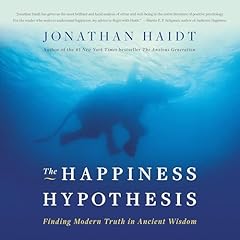
The Altruistic Urge
Why We’re Driven to Help Others
No se pudo agregar al carrito
Add to Cart failed.
Error al Agregar a Lista de Deseos.
Error al eliminar de la lista de deseos.
Error al añadir a tu biblioteca
Error al seguir el podcast
Error al dejar de seguir el podcast
Obtén 3 meses por US$0.99 al mes
 Exclusivo para miembros Prime: ¿Nuevo en Audible? Obtén 2 audiolibros gratis con tu prueba.
Exclusivo para miembros Prime: ¿Nuevo en Audible? Obtén 2 audiolibros gratis con tu prueba.
Compra ahora por $19.29
-
Narrado por:
-
Donna Postel
Ordinary people can perform acts of astonishing selflessness, sometimes even putting their lives on the line. A pregnant woman saw a dorsal fin and blood in the water—and dove right in to pull her wounded husband to safety. Remarkably, some even leap into action to save complete strangers: one New York man jumped onto the subway tracks to rescue a boy who had fallen into the path of an oncoming train. Such behavior is not uniquely human. Researchers have found that mother rodents are highly motivated to bring newborn pups—not just their own—back to safety. What do these stories have in common, and what do they reveal about the instinct to protect others?
In The Altruistic Urge, Stephanie D. Preston explores how and why we developed a surprisingly powerful drive to help the vulnerable. She argues that the neural and psychological mechanisms that evolved to safeguard offspring also motivate people to save strangers in need of immediate aid. Merging extensive interdisciplinary research that spans psychology, neuroscience, neurobiology, and evolutionary biology, Preston develops a groundbreaking model of altruistic responses. Her theory accounts for extraordinary feats of bravery, all-too-common apathy, and everything in between—and it can also be deployed to craft more effective appeals to assist those in need.
©2022 Stephanie D. Preston (P)2022 TantorLos oyentes también disfrutaron:






















